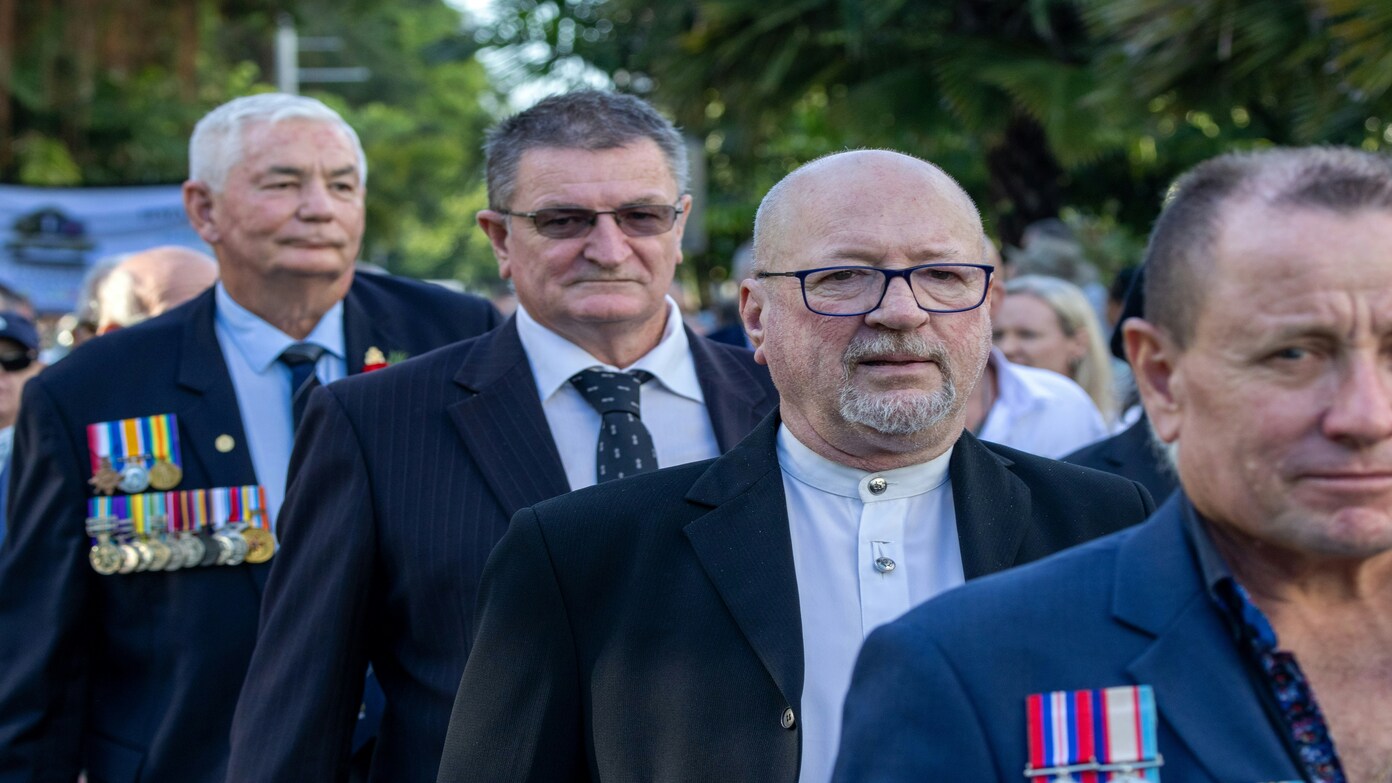A new regulation with high stakes
Starting in 2026, veterans who receive the Supplemental Nutrition Assistance Program (SNAP) will have to pass a tough new test: working, volunteering, training, or actively looking for work for 80 hours a month in order to continue receiving their benefits after three months. Veterans will no longer be automatically exempted from these requirements under President Trump’s newly signed tax and spending bill—a provision that could affect 1.2 million veterans living in SNAP households.
The policy shift is meant to encourage healthier adults to enter the workforce. But some veterans are concerned that it misses the actual hurdles they face.
“I have to work—but it’s not easy”
For veterans like Darryl Chavis, an Army veteran diagnosed with post-traumatic stress disorder, the new policies are less a nudge and more a push.
“What I’m trying to do is get stabilized, get into an apartment. I have the skills to be employed. So it’s not that I’m not going to work,” Chavis told Stateline. “I need to work. I’m in transition, and the barriers don’t make it happen.”
Chavis’s outrage is also felt by many vets who can have trouble proving consistent hours due to health problems, no civilian work history, or simply old-fashioned difficulty finding a job that uses military skills. And for those with weak support systems, the rule change could be a recipe for catastrophe.
Why veterans are particularly at risk
Veterans are underemployed, not because they do not want to work, but because many of them face:
- Service-connected illnesses or disabilities
- Lower educational attainment after years in uniform
- Limited civilian work experience or skills mismatch
- Employer discrimination by some
- Difficulty obtaining training or support services
Black and Hispanic vets have even worse jobless rates than their white counterparts, according to the Center on Budget and Policy Priorities. Those gaps would result in one federal rule hitting minority vets particularly harshly.
It’s a matter of principle, supporters argue
Not everyone thinks the policy is unfair. Robert Rector, a senior research fellow at the conservative Heritage Foundation, says it’s a matter of principle to make SNAP more restrictive.
“Most of the people in this group live with other people who have incomes, so there literally isn’t really a chronic scarcity of food here,” Rector told Stateline. “We have tens of thousands of free food banks that people can go to. So it’s just a responsibility to drive these people onto the correct path, and it shouldn’t go unenforced anymore.”
This one cries out for an appeal to legislators who would like to curb federal expenditures and ensure benefits only go to those in dire need of them.
A looming deadline for Congress—and for veterans
The bill is signed into law, and the clock starts ticking for 2026. Except for another exemption, if available, veterans will have to show compliance with the 80-hour-per-month standard to maintain their SNAP benefits after three months. For many, that’s getting a job—or being able to show they’re looking—under increased federal scrutiny.
Critics are concerned that without special assistance programmes, the regulation will push vulnerable veterans into further destitution. Opponents counter that the requirement is reasonable and that charitable resources like food banks can make up the difference.
For the 1.2 million veterans who rely on food stamps to get by, however, the message is clear: get set to punch the clock—or starve.
Read this later:
Major change could leave Veterans without access to food stamps
VA Disability Claim Status: What does it mean if your VA claim is deferred?
Trump moves forward to ban nearly all abortions in Veterans Affairs hospitals
Can I be arrested for debt if I don’t pay a VA loan?
Can a veteran transfer their educational benefits to their children or spouse?

